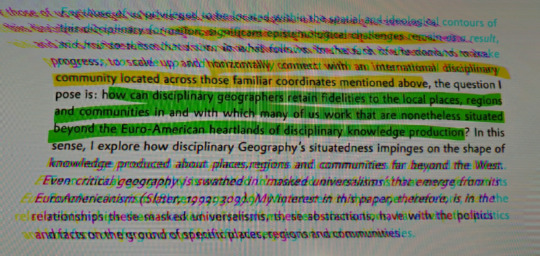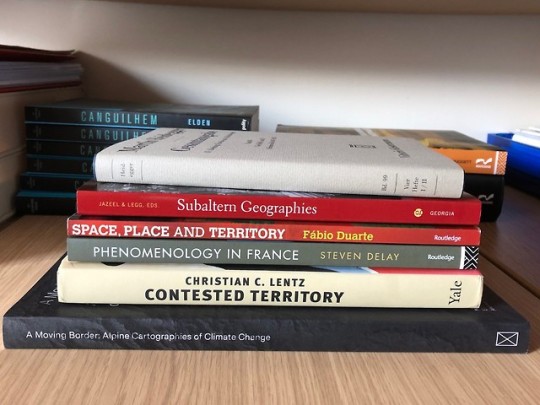#tariq jazeel
Text
TARIQJAZEEL//KNOWLEDGEPRODUCTION//POSTCOLONIALISM

0 notes
Photo

Books received – Heidegger, Jazeel and Legg, Duarte, Delay, Lentz, Baganato, Ferrari and Pasqual The latest volume of the Heidegger Gesamtausgabe, Vier Hefte I und II, Tariq Jazeel and Stephen Legg (eds.), …
0 notes
Text
[H]ow can I know difference in ways that do not prescribe otherness in my own terms? We might think here of other ways of knowing and being that are at first radically incompatible with the Apollonian image and cosmos: aboriginal animism, Buddhist attainments of non-selfhood, or Sufi mysticism. Moreover, we might think of the sheer inadequacy of the conceptual languages intuitively available to us to grasp these formations on terms true to the singularity of those differences. To write about ‘Buddhist attainments of non-selfhood’, for example, is to speak from an ontological starting point that takes liberal and Cartesian notions of the atomized, rational self for granted. It is to invest in a world of ‘nature and culture’, ‘subjects and objects’, where such a language is unable to comprehend the ontological reality of the Buddhist (non)subject on its own terms, a (non)subject which itself is inseparable from a metaphysical universe composed of energy (dhamma) (see Jazeel, 2005).
The point that planetarity stresses is that such worldings do not lend themselves to mere incorporation, or toleration, by a dominant cosmopolitan imagination. Furthermore, such other worldings may also in fact equally instantiate their own universals that radically destabilize the primacy of cosmopolitanism itself, perhaps in the process instantiating their own power geometries. In short, the challenge planetarity poses is the work of grasping the aesthetics and actualities of incommensurable differences from their own insides out, because it is that hard and uncertain work without guarantees that decentres the ‘we’ beholden to the cosmopolitan dream of a rationally knowable universality. In this sense, unlearning is a crucial part of the work that planetarity demands, and unlearning cosmopolitanism is one such step toward more egalitarian modes of living together.
T. Jazeel “Rethinking Planetary Futures”
7 notes
·
View notes